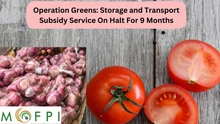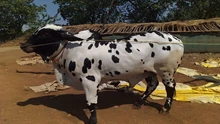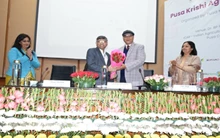
Like other Industry, Agriculture in Israel also has a leading role in shaping its economy. Agriculture is a highly developed in Industry in Israel. The country leads in exporting fresh produce and ranks number one in Agricultural technologies, irrespective of the fact that the geography of Israel is not that favoring for agricultural practices. More than 50% of the nation’s land is available as desert and farming is generally supported by prevailing weather conditions. Water sources are also lacking and not more than 20% of the land area is naturally arable. Since Israel is a world leader in agricultural research and development, there has been significant enhancement of quantity (Production) and quality of the crops there. This has resulted in the development of new seed and plant varieties, as well as several innovative techniques, like a soil conditioner substance (vermiculite) which, when mixed with local soils improves yield of the crops, also supporting cultivation through drip irrigation.
The leading agriculture technologies adopted by Israel are
1.Drip Irrigation
2.Water Recycling
3.Intelligence
4.Bio-Pesticides
5.Bio-Fertilizers
6.Robotics
7.Sensors
1.Drip Irrigation - a micro-irrigation system which is beneficial in conserving water and nutrients by allowing water to drip slowly to the roots of plants, either from above the soil surface or buried below the surface. Objective of this technology is to place water directly into the root zone and minimize evaporation. It was developed in Israel by Simcha Blass and his son Yeshayahu.Instead of releasing water through tiny holes easily blocked by tiny particles, they released water through larger and longer passageways by using friction to slow the force water inside a plastic emitter. The first experimental system of this type was established in 1959 by Blass, who partnered later (1964) with Kibbutz Hatzerim to create an irrigation company called Netafim.
2. Water Recycling - According to an article in The Tower Magazine, nearly 90 percent of the wastewater generated in Israel is reused thus making it the leading nation in water recycling/. Spain is the second largest nation for water reuse, which recycles 20 percent of its waste water. Super power like U.S. is still unable to recycling more than 1-2 percent of its wastewater as per reports. The water treated for reuse in Israel is predominantly used for agricultural irrigation. Roughly one tenth of waste water is used for environmental purposes, such as increasing volume of river flow or suppression of fire. Only 5 percent is discharged into the sea in the country. Israel has been able to survive drought and periods of water scarcity, through water conservation and reuse. This system has also been able to flourish and use reclaimed water as a vital point for creating new business ventures or economic opportunities.
3. Intelligence - Israel has made breakthrough in adopting digital technologies which successfully adjust the ways that farmers treat crops and manage fields. As a result, ever-evolving digital agriculture is constantly helping in improving quality and quantities in Agricultural products. Examples are Satellite imagery, drone and other aerial imagery etc.
4. Bio Pesticides - The damage control through chemical sprays in 95% of the crops. However, Israeli scientists are appreciably reducing chemical control measures by pursuing less harmful agricultural control methods or focusing on bio control measures. Biological control means controlling crop damage risk by use of Bio-pesticides. For example isolation and synthesis of pheromones. Pheromones are substances secreted by insects to communicate a variety of social messages, including trail marking, battle orders, sexual conditions etc. Fertile female insects often secrete pheromones that are carried by the wind, attracting males downstream. Initially, natural pheromones were used to trap males. Natural pheromones are extracted from females. Later it involved a tedious process which monitored the response of male antennae, and enabled scientists to chemically produce the compounds.

5. Bio fertilizers - It involves microbial inoculants, collectively termed bio-fertilizers, used to improve nutrition and yields of grain, legume, oil, tuber, and other crops. A vast number of commercial bio-fertilizers are available in different countries.
6. Robotics -It is one of the milestone achievements in agricultural technology, involving robots picking fruits from tall trees or from plantations in those regions where human picking is very tough or nearly impossible. Another use is robots performing specific tasks like spraying, monitoring or yield assessing) which operates inside greenhouses where pepper is grown. As the robot moves inside the greenhouse, between its rows it collects diverse data about the crop, without making any physical contact with the plants.
7. Sensors - This is another innovative technology where a robot equipped with a SONAR sensor is used in an experiment conducted in the fields of any research institute. This implies that the use of this technology is advantageous for growers to acquire a close-to-real estimation of the crop's yield from a given plot, irrespective of whether the plot is in a greenhouse or an open field. Another example is involving robotic arms supporting a high-resolution, hyper spectral camera, which can detect early signs of leaf diseases (due to viral or fungal infections) in crops grown in greenhouses.








